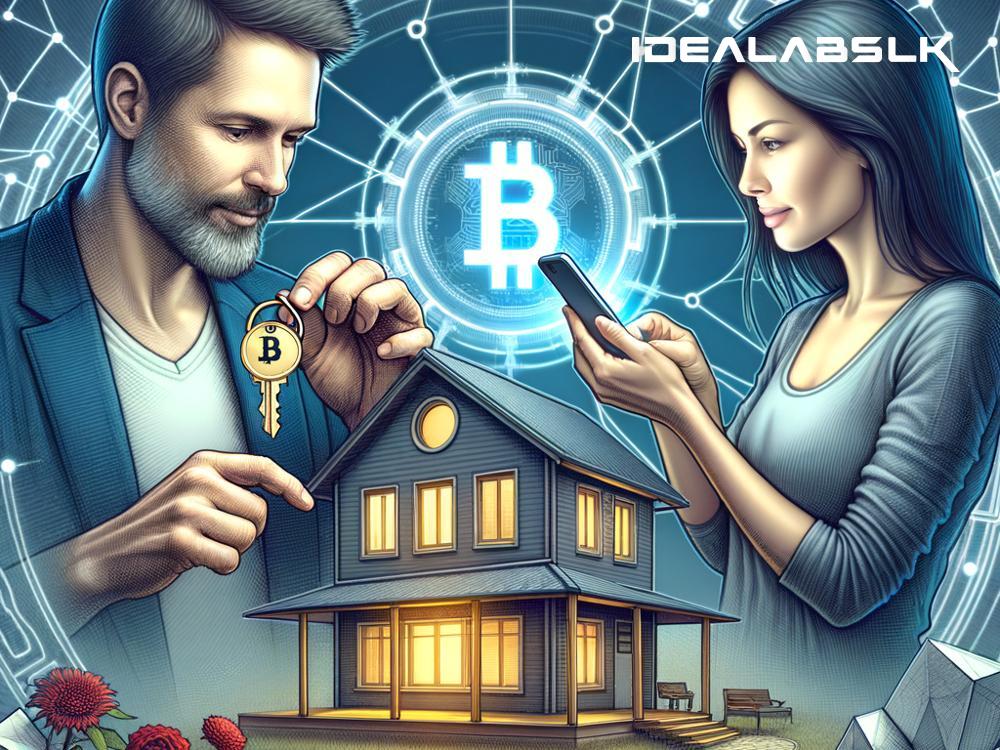Blockchain and Real Estate: How Blockchain is Enabling Seamless Property Transfers
The world of real estate can seem like an endless labyrinth of paperwork, legal procedures, and bureaucratic delays. But what if there was a way to streamline the whole process, making buying and selling properties as easy as clicking a button? Enter the blockchain, a revolutionary technology that's set to transform the real estate sector. In simple terms, blockchain is a secure, transparent way to record transactions, and it's enabling seamless property transfers in ways we've only dreamed of.
Understanding Blockchain
Before diving into the specifics of blockchain in real estate, let's quickly refresh what blockchain is. Imagine a digital ledger that is shared among a network of computers. Each block in the chain contains a number of transactions, and every time a new transaction occurs, a record of that transaction is added to every participant's ledger. This system is incredibly secure because to change even a tiny part of a transaction, one would need to alter every subsequent block, which is practically impossible due to the cryptographic hash functions.
The Current Real Estate Transfer Process
Traditionally, transferring property involves numerous steps: verifying the property's history, securing financing, conducting property inspections, obtaining property insurance, and, finally, the actual transfer of property. Each of these steps requires paperwork, time, and, unfortunately, often leads to human errors and fraud. The process is not only cumbersome but also opaque, leaving room for inefficiencies and mistrust.
Blockchain to the Rescue
Blockchain technology enters this somewhat archaic scene with the promise of efficiency, transparency, and security. Here's how it's revolutionizing real estate transfers:
-
Smart Contracts: These are self-executing contracts with the terms of the agreement directly written into lines of code. In real estate, smart contracts can automate the transfer process once certain conditions are met, like payment confirmation, without needing intermediaries. This reduces the time and cost involved significantly.
-
Transparency and Security: Blockchain's transparent nature allows all parties to view transaction histories, providing unparalleled clarity. Its security features also reduce fraud, since altering any information would require changing every instance of the ledger across the network—a near-impossible feat.
-
Tokenization of Properties: This involves splitting a property into shareable digital units or tokens that represent a certain ownership stake. Tokenization can lower entry barriers for investors, allowing people to buy portions of properties much like stocks. This could democratize property investment, making it accessible to more people.
-
Efficiency in Transactions: By eliminating middlemen and automating many of the steps involved in the property transfer process, blockchain can reduce delays, errors, and the overall cost of real estate transactions.
Real-world Examples
While blockchain in real estate might sound futuristic, several initiatives are already underway:
-
Propy is a company that facilitates online real estate transactions using blockchain. It has successfully carried out property sales purely through blockchain, demonstrating the technology's potential in simplifying real estate deals.
-
Republic Real Estate focuses on tokenizing properties, allowing users to invest in real estate with as little as $50, showcasing how blockchain can democratize investment in real estate properties.
Challenges and Future Outlook
Despite its potential, blockchain in real estate is not without its challenges. Legal and regulatory hurdles, the digital divide, and the need for widespread adoption are significant barriers. However, as technology advances and more players in the real estate industry recognize blockchain's benefits, these obstacles are likely to diminish.
The future of real estate transactions lies in embracing technologies like blockchain that offer a streamlined, transparent, and secure process for property transfers. As we move forward, we might see a world where buying or selling a property is as simple as a few clicks, revolutionizing the real estate market in ways we can only begin to imagine.
Conclusion
Blockchain is more than just the technology behind cryptocurrencies. Its application in real estate could very well spell the end of traditional, cumbersome property transfer processes, making real estate transactions faster, more transparent, and accessible to everyone. As this technology matures, it promises to open up new horizons for buyers, sellers, and investors alike, making the dream of a seamless property transfer a reality.
While we're still in the early days of blockchain in real estate, the revolution has begun. Its potential to reshape the real estate landscape is enormous, offering exciting opportunities for innovation and improvement in how we deal with property transactions—a future where blockchain-enabled property transfers become the norm is not just possible; it's on the horizon.

